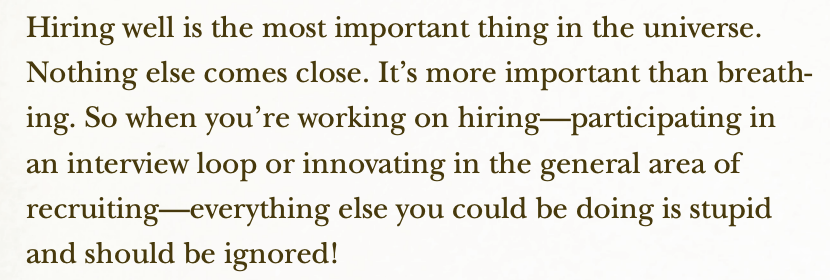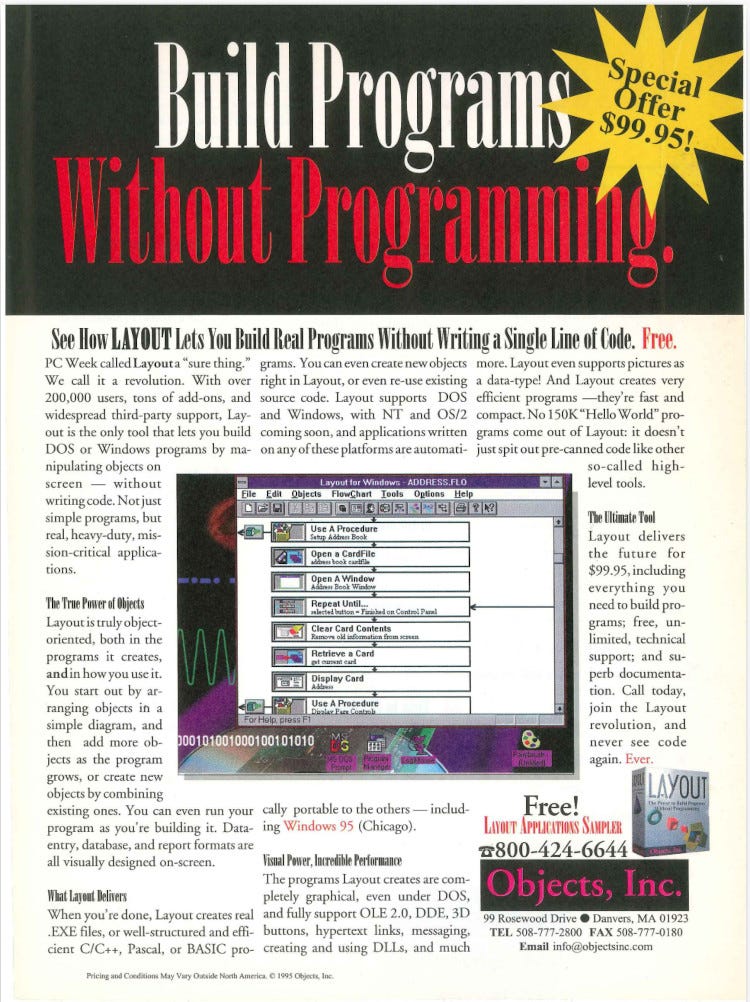Personal Notes to help AI know you
Kaparthy uses Obsidian
"This is what software could be: private, secure, delightful, free of dark patterns, fully aligned with the user, where you retain full control and ownership of your data in simple, universal formats, and where tools can be extended and composed."
LLMs as knowledge repositories
Until we get brain implants, it makes sense that you’re going to want for a secure, private AI to get to know you better.
“People have been saying that data is the new oil for a long time. But I do think, in this case, if you’ve spent a lot of time collecting and curating your own personal set of notes, articles, books, and highlights it’ll be the equivalent of having a topped-off oil drum in your bedroom during an OPEC crisis....
Apps like Readwise Reader or Pocket or Instapaper that allow you to store articles you’ve read (or articles you want to read) are going to be a gold mine to the extent that they hook up to AI tools. They’ll be extra useful because they record the articles you explicitly bookmarked and read, this will make it easier for AI tools to know which pieces of information to weight in their responses."
OpenAI Cookbook
Processing and narrating a video with GPT's visual capabilities and the TTS API
Robotics
:no_upscale():format(webp)/cdn0.vox-cdn.com/uploads/chorus_asset/file/8056325/giphy__5_.gif)
It's going to be a monstrous year for investment into robotics. On my list to figure out what to read in this area.
Lightspeed have led a $43 million round into RobCo covered by Forbes.
Remember back in 2017 when Google sold Boston Dynamics?
A wizard speaks up on the future of coding
“Coding” was never the source of value, and people shouldn’t get overly attached to it. Problem solving is the core skill. The discipline and precision demanded by traditional programming will remain valuable transferable attributes, but they won’t be a barrier to entry.
Many times over the years I have thought about a great programmer I knew that loved assembly language to the point of not wanting to move to C. I have to fight some similar feelings of my own around using existing massive codebases and inefficient languages, but I push through.
I had somewhat resigned myself to the fact that I might be missing out on the “final abstraction”, where you realize that managing people is more powerful than any personal tool. I just don’t like it, and I can live with the limitations that puts on me.
I suspect that I will enjoy managing AIs more, even if they wind up being better programmers than I am.
John Carmack
Smartphone Free Child
"97% of 12-year-olds in Britain have a smartphone.
When children started getting them, there was no research about their impact. Now there is, and it’s overwhelming.
Smartphones expose children to harmful content, raise the likelihood of developing a mental illness and are highly addictive.
But parents have been put in an impossible position.
Either we give our children access to something that opens the door to porn, bullying, grooming and the anxiety machine that is social media, or we risk alienating them from their peers.
Regulation hasn’t caught up with the technology, so it’s parents and children that lose out."
Billing Systems

You pay for stuff everyday. Ever wondered how hard it is to manage the complexity behind it? The "Essential Complexity" of billing systems surprising.
The future of UI engineering
Starting to see some shared thoughts on the power of AI+Server Streamed UI.
This will be the end of view-source:
— @levelsio (@levelsio) February 26, 2024
Every site will be a WebGL canvas with a UI engine
The contents can even be livestreamed from a UI server at 60fps
Crazy future and maybe inevitable https://t.co/jhhuo11t0P
The most important graph...
the most important graph in software rn. perhaps the most important graph for human productivity in decades. pic.twitter.com/JbHHm85N6M
— Mustafa Suleyman (@mustafasuleyman) September 1, 2023
Hacker News banger
>inventor of the original programming copilot (tabnine) creates a modern version
— metakuna (13/100 blog posts) (@metakuna) February 26, 2024
>it's 3x faster than Github copilot
>it has a 300k context window
"uhm, I shouldn't have to put in my credit card info to use this, clearly you weren't paying attention on day 27 of Startup School" pic.twitter.com/MKvJwZohoT
Valve on Hiring

Valve is probably the highest profit-per-employee company you've never heard of (if you don't game).
They have a new employee handbook that is fascinating. How could a new employee handbook of another company be fascinating? Valve has no managers. You pick what you work on. Every desk has wheels.

Enterprise Design
Linear's CEO Karri Saarinen on Design in Enterprise Software:
Traditionally, design hasn’t been prioritized in the enterprise, but I believe design can be much more important there than on the consumer side.
Enterprise or professional software often provides tools or solutions to someone to create or generally do their job or do it better. The bar for the solution can be very high, and the user is very discerning of that solution. If the design tool the designer uses isn’t that good, the quality isn’t there, and it’s very apparent.
Since people are relying on the service to do their job or run their business, the stakes and need for reliability are also higher. If you constantly A/B test random things, it can cause disruption to the workflow, and therefore in the operations of the company. Design choices and changes should be considered and validated with beta programs.
Almost all companies serving other companies are in retention and usually also in net retention business. Ideally, you keep your customer forever, and you want the account to grow over time so their net dollar retention goes over 100% year after year. Design can have a huge impact on building loyalty. One main reason companies churn from products is when the product quality and design speed drop. Customers get frustrated, so they start looking for other options. Good design has the power to do the opposite. If you consistently delight the customer, you build up that loyalty and trust.
I think landing customers can be a finicky process. There might be many people in the process trying to evaluate your product against some other product. Usually, customers cannot inspect your code, or even fully grasp the product strategy, but one thing they can do is experience the product experience. Good design (and obviously the quality of the product execution) can really elevate that experience and be the thing that gets the customer excited about your tool.
But it's not all roses. The reason why design is hasn't been traditionally prioritized in the enterprise is that enterprise software has buyers and users. The buyers often don't use the product or even try it. If you work in a company that gives you janky tools, it's probably because the buyers had other goals and the product experience inconsequential to those goals.
But I don't this is practice is going to sustain.
The pressure and demand for well working and well designed enterprise tools will continue to rise and eventually buyers will realize why they are there – to elevate their teams with the best tools available.
Computer Ads from the past

The cloud sucked
I'm often asked "why mobile apps"? One of the reasons is that mobile was the platform of my time growing up. The other reason is that building services went through such a mind-boggling amount of churn in tooling that had absolutely nothing to do with building software for people. In other words, the cloud sucked.
Here's Vercel's CEO Guillermo Rauch saying it:
The cloud equivalent of this is that you have to build both the infrastructure (“hardware”) and frameworks (“software”) in order to deliver a great developer experience.
This was obvious to the hyperscalers (Google and Meta notably building a tight integration between runtimes, frameworks, private clouds, and even IDEs), but it was unheard of for the vast majority of businesses moving online until recently.
A big reason for this is that the infra primitives took significant time to perfect. Maturing and securing a multi-tenant, adversarial environment is more technically challenging. Firecracker and gVisor are examples of necessary innovation milestones along the way.
As a result, the experience of actually _using_ the cloud sucked. It took a backseat to laying out the foundations. Terraform, kubernetes yaml, helm charts, cloudformation, CI/CD pipelines, Dockerfiles, bespoke CDN configuration and purging pipelines… all of this is in the process of being abstracted away.
I anticipate the next 10 years of the cloud are going to be the most productive and cost-effective. Most organizations will get to focus on the application and data layer, where most of the value will accrue in the age of AI. Unlocking this opportunity is our goal @vercel.
